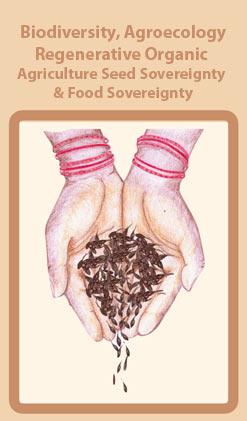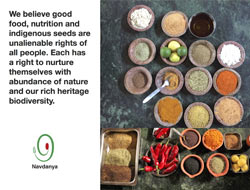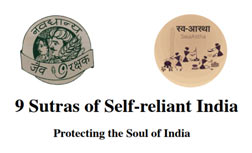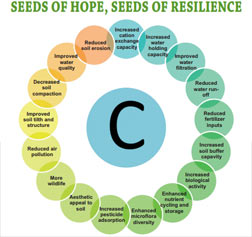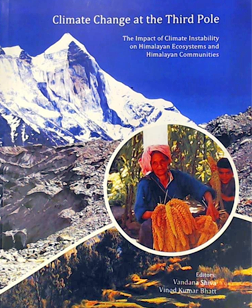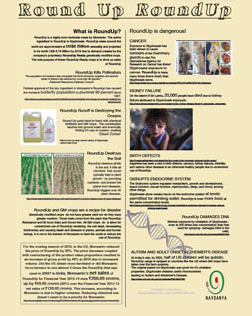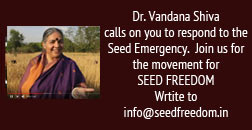Bija Satyagraha-Defending Farmers Seed Freedom Since 1991, when the Dunkel Draft Text of the WTO agreement were leaked Navdanya organised awareness campaigns and rallies to alert
farmers across the country about the emerging seed monopoly through patents. Navdanya spearheaded the movement to protect the farmers rights to biodiversity, rights of seed saving and seed exchange. We have been organizing several seminars, yatras, signature campaigns to
create awareness amongst the farmers and also to sensitize the policy makers and politicians of the country to defend seed freedom. We started organizing farmers through the Bija Satyagraha
Movement to keep seed in farmer’s hands and refused to cooperate with unjust IPR and seed laws that make seed a corporate monopoly and seed saving and seed sharing a crime. In 1993, half a million farmers participated in a historic Bija Satyagraha rally at Bangalore’s
Cuban’s Park. This was the first international protest against WTO Bija Satyagraha is
- a grass-roots campaign on patent issues,
- an assertion to people’s rights to biodiversity and
- a determination not to co-operate with IPR systems that make seed saving and seed exchange a crime.
In February 1992, Navdanya organized a National Conference on GATT and Agriculture with the Karnataka Rajya Ryota Sangha (KRRS) followed by a massive farmers rally in Hospet organized by Navdanya in association with the KRRS in October 1992. The Seed Satyagraha was launched following Gandhi’s Swaraj as a fight for truth based on non-cooperation with unjust regimes. In March 1993, we held a national rally in Delhi at the historic Red Fort under the leadership of the national farmers’ organizations, the Bharatiya Kisan Union. Independence Day 15th August 1993 was celebrated with farmers asserting their Collective Intellectual Property Rights’ (Samuhik Gyan Sanad) On 2nd October, 1993, one year of the seed Satyagraha was celebrated in Bangalore with a gathering of 500,000 farmers where farmers from other Third World countries as well as scientists who work on farmers’ rights and sustainable agriculture participated in an expression of solidarity.
On 5th March 1999, Navdanya reasserted the Bija Satyagraha Movement against the immoral and illegitimate laws with over 2500 groups to defend farmers’ rights and seed freedom in the face of biopiracy and seed monopolies.
The movement was part of the Campaign for Bija Swaraj – Seed/Biodiversity Sovereignty. The Bija Satyagraha was launched to defend biodiversity and people’s rights to biodiversity, a new freedom movement against the new colonization of our life, livelihood and living resources. The internationalization of the Seed Satyagraha within one year has given the word “globalization” a new meaning. From representing global markets as in the parlance of
free trade proponents, it has come to mean from us the globalization of people rights and seed freedom through resistance to centralized control over all aspects of their life.
Navdanya with its network Diverse Women for Diversity and its partner International Forum on Globalisation was active at the WTO protest in Seattle which stopped the WTO and have not allowed it to come out of intensive care since then.
In September 2000, over 400 farmers from all over the world came together at the unique Bija Panchayat (People’s Seed Tribunal) to give evidence of the crisis of seed and agriculture in the wake of globalization, which is pushing small farmers to suicide. Today the Bija Satyagraha has spread through large number of communities and groups across the country.
Responding to the deepening crisis, RFSTE and Navdanya took the initiative to organize a Bija Yatra in India in the year 2000 with the focus on Seed Rights, Seed Conservation and Sustainable Agriculture. Navdanya’s Seed Tribunal and Bija Yatras (Seed March) have created awareness through seed fairs, seed exchange programs and initiation of new community seed banks.
We have been organizing Bija Panchayats, in different parts of the country against the existing IPRs laws, i.e. Patent Act, Seed Act, the PVP Act and Biodiversity Act, to articulate the peoples collective voice so that the entire discussion and policy on the seed is not determined by the corporate sector and interests driven by profit motives.
Navdanya, RFSTE and West Bengal Institute of Juridical Sciences drafted an alternative IPR law, which provides sovereign rights

